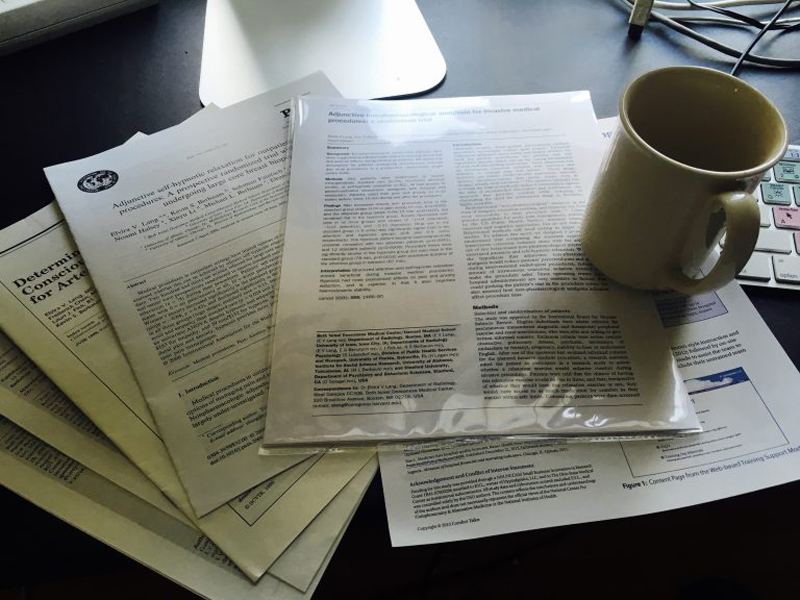Evidence and Common Sense

A response to my Time Distortion blog/Facebook post inspired me to reflect on “evidence.” The blog addressed how a patient-centric communication made the time spent with the healthcare professional seem longer even though on the stopwatch it was faster. The reader commented, “I’m just shocked it took a ‘study’ or training session to understand this basic human truth. Seems common sense to me.” How true in a sense. There is much one understands intuitively that should just be a “no-brainer” and find entry into medical practice. But noooo – any change in the status quo requires scientific evidence e.g. objective numbers to the contrary. In a legal deposition a lawyer even once told me that common sense is not admissible as justification of a statement.
I recall the time when I did interventional mammography taking biopsy samples from areas that had seemed suspicious on a mammogram. My colleagues and I always thought it would be pretty obvious that waiting several days or more than a week for a result would cause tremendous mental strain. “The waiting for the results was the worst part” is something we heard repeatedly from patients and their relatives. But logic alone would not lead to change in processing the samples through the pathology department that evaluated the biopsies. So to bring about change we had to do a study.
For supporting “evidence-based medicine” participants’ words or surveys are not as convincing as hard-core laboratory test or other objective measures (such as a stop watch). Our patients, who are the real heroes in the story, generously agreed to collect saliva samples 4 times a day for the week after their biopsies. Now we could show unequivocally, based on their daily profiles of the stress hormone cortisol, that uncertainty, not knowing the result, was associated with biochemically-proven stress which could have an adverse effect on immune defense and wound healing (1). Now we could affect change in how these samples would be processed and also give recommendations of how to better handle a biopsy if one ever needs one (2).
Sometimes common sense can be misleading. Women have lower risk of heart disease than men before menopause, but not afterwards. So it stood to logic that giving women the sex hormones they produce before but no longer after menopause should be beneficial for their cardiovascular health. The fact that estrogen and progestin help with hot flashes made that assumption even more attractive (particularly for anyone who ever had a hot flash). But after decades of prescribing supplemental hormones it took the clinical trials of the Women’s Health Initiative to stop the practice since it actually resulted in more strokes and blood clots, and, depending on the type of hormone replacement, more heart attacks, and cancers (3).
So I hate to admit it myself – not everything that seems common sense may hold up to rigorous clinical evaluation. And therefore we test and retest everything we do with Comfort Talk development, training and implementation.
References
- Lang EV, Berbaum KS, Lutgendorf SK. Large-core breast biopsy: abnormal salivary cortisol profiles associated with uncertainty of diagnosis. Radiology. 2009 Mar;250(3):631-7. http://www.ncbi.nlm.nih.gov/pubmed/19244038
- Lang EV. Managing your medical experience. The information you need plus self-hypnosis for finding comfort with your tests and treatments. Middletown, DE: Create Space; 2014.
- Department of Heath and Human Services. Women’s Health Initiave. Questions and answers about the WHI Postmenopausal Hormone Therapy Trials 2004 [cited 2016]. Available from: https://http://www.nhlbi.nih.gov/whi/whi_faq.htm.
